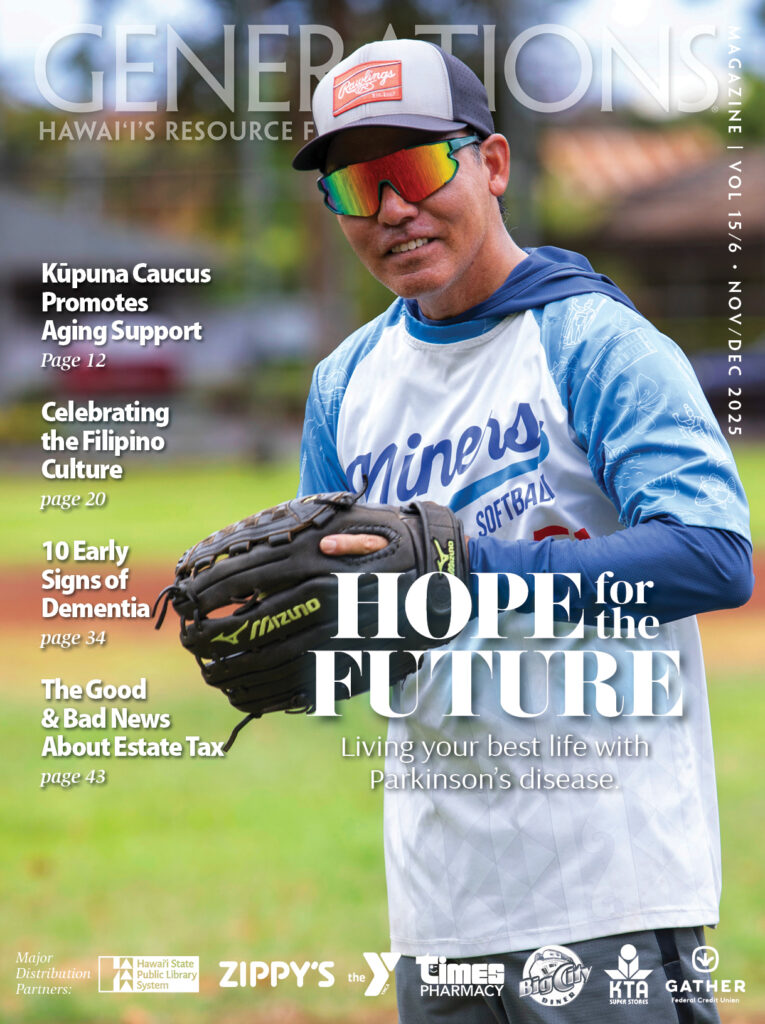Family members, partners and close friends are an important source of support for older people who need help taking care of themselves at home. In Hawai‘i, these caregivers provide most of the care for loved ones who need help with activities such as bathing, dressing and transportation. Many caregivers also perform complex tasks such as providing wound care, managing medications and operating medical equipment.
But despite the importance of caregivers in the day-to-day care of our ku¯puna, they are often left out of discussions involving a patient’s care while in the hospital. And when loved ones are discharged from the hospital, caregivers often receive little or no instruction on how to help prevent readmission.
To address this issue, AARP Hawaii is urging passage of a bill in the 2014 state Legislature that would allow patients to designate a caregiver as part of their medical record — or that hospitals voluntarily adopt this practice. The bill requires hospitals to notify and meet with the designated caregiver to discuss the patient’s plan of care prior to discharge or transfer to another facility. It also requires hospitals to instruct caregivers in how to care for loved ones after they are discharged.
“This bill will have the two-pronged effect of supporting family caregivers and keeping health care costs in check,” says Steve Tam, AARP Hawaii director of advocacy. “It enables caregiv- ers to support their loved ones at home and in the community, and discourages costly and unnecessary hospital readmissions.”
The federal Centers for Medicare & Medicaid Services (CMS) estimates that $17 billion in Medicare funding is spent each year on unnecessary hospital readmissions. The bill is intended to reduce readmissions by engaging caregivers more intentionally in the care of their loved ones. It also comes as hospitals across the country are seeking to avoid admission penalties under the federal Affordable Care Act.
In Hawai‘i, family caregivers already play a critical role in the care of our elderly and disabled populations. On any given day an estimated 247,000 residents provide unpaid care valued at a staggering $1.9 billion annually, according to 2009 data. Caregivers are often members of the individual’s immediate family, but friends and other community members also serve as caregivers.
AARP is dedicated to helping Hawai‘i’s caregivers by providing the tools, information and support they need to care for their loved ones and themselves. For information on the status of this legislation, or to get involved as an advocacy volunteer, contact Steve Tam at 808-545-6005.
For information on resources for caregivers available online, visit the AARP Caregiving Resource Center at www.aarp.org/caregiving.
AARP Hawai‘i state office: 808-545-6024 | Toll-Free: 866-295-7282 | aarp.org/hi | facebook.com/AARPHawaii twitter.com/AARPHawaii


Leave a Reply